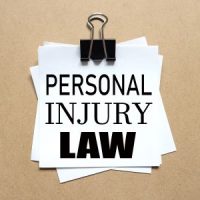Understanding the Burden of Proof in South Carolina Personal Injury Cases

In South Carolina, you can file a personal injury claim and pursue compensation after suffering injuries in an accident because of another party’s negligence. As the claimant, you will have the burden of proving your case before you can recover any compensation. In other words, in an SC personal injury case, the “burden of proof” lies with the claimant. Usually, defendants don’t have a burden of proof unless they assert specific types of defenses. Understanding the principle of “burden of proof” is vital.
What Is the Burden of Proof?
The burden of proof is a legal principle that dictates which party in a legal case must present evidence to prove their allegations or support their claims. In a South Carolina personal injury case, the burden of proof lies with the claimant (the person bringing the case). The claimant has the burden of proving that the defendant is liable for their injuries and damages.
Usually, before a personal injury case goes to court, the claimant’s attorney will try to settle the case through negotiations. During negotiations, there is no burden of proof requirement. “Burden of proof” applies when a personal injury case goes to court. However, while this legal principle does not apply during negotiations, it is vital that your attorney treat your case as though you were in court even during negotiations. Your attorney should ensure you meet the burden of proof.
What Is the Standard of Proof in SC Personal Injury Cases?
“Burden of proof” and “standard of proof” are two legal principles that mean different things but are related. While “burden of proof” refers to your obligation as the claimant to prove your claims, “standard of proof” is the threshold to which you must prove your case to prevail. In other words, it is the degree of evidence necessary to meet the burden of proof.
Most people are familiar with the standard of proof known as “beyond a reasonable doubt.” This high standard of proof only applies in criminal cases. In a personal injury case, a lower standard of proof applies. The claimant in a South Carolina personal injury lawsuit is required to prove their case by a “preponderance of the evidence.” Under this standard of proof, you are required to show that your version of events is more likely than not the truth. Think of it like a scale. If one side has a lot of proof and the other side has only a little, the side with more proof tips the scale. This doesn’t mean they have to prove everything beyond a doubt—just that your evidence is stronger and more believable. So, if your side has the better evidence, you’re more likely to win the case.
However, a higher standard of proof applies when seeking punitive damages in a personal injury case. You must show that you are entitled to punitive damages by “clear and convincing evidence.” This standard requires you to show that there is a high probability that your claims are true. To recover punitive damages, you must show that your claim for the damages is highly and substantially more likely true than not true.
Contact a Personal Injury Lawyer
If you have a personal injury claim, contact our skilled personal injury lawyer at Gus Anastopoulo Law Firm. We can help you meet your burden of proof for your case.

